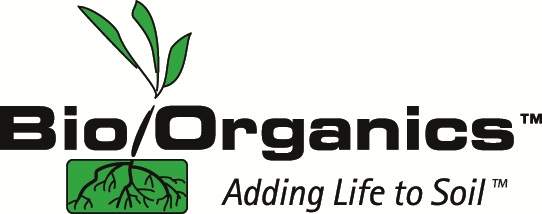Anyone who spends enough time researching plant physiology will invariably be led to the same conclusion to grow better: For best plant health and performance plants need biological partnerships with other living soil organisms, especially mycorrhizal fungi. Chemical fertilizers alone can never match the full benefits of building up great natural soil conditions.
There are many living things in soil that are important to full plant health, including beneficial bacteria, decomposing fungi, and earthworms - and soil chemistry cannot be completely ignored - but the unique symbiotic relationship between mycorrhizal fungi and plants is the key factor for organic-growing success. A noted USDA/ARS plant pathologist was quoted, "...and the most important organism, in my view, is mycorrhizal fungi."
The reason? A plant that lacks mycorrhizae on its roots has only very limited surface contact with soil. Millions of years of evolution in partnership with the soil-colonizing fungi has led to most plants growing relatively few small feeder roots. The mycorrhizal fungi is such an efficient forager (there can be more than a mile of the fungi's tiny root-threads per cubic inch of soil) that plants essentially turned over that task to the fungi eons ago.
As the microscopic fungi root-threads (more properly, hyphae) attach to plant roots and colonize the surrounding soil, the host plant in effect gains dramatically greater surface-area contact - and is therefore able to gain access to more nutrients and moisture. Studies indicate that a mycorrhizal plant can access and uptake 50-100 times more than a non-mycorrhizal plant. And the hyphae also provide fodder for other soil organisms, loosen compacted soil, and help build up organic matter (OM). This is why wild plants never deplete their soils - there is this process of continuous replenishment going on, needing only the recycling of leaf litter and microbial/earthworm excretions for the host plants to enjoy full health.
Actually, I might argue that the fungi are the hosts and plants simply their tools for accessing solar energy aboveground. The fungi are the older organisms and do exhibit some "intelligence" in their activities (in the same sort of way that colonies of ant or termites have evolved clever survival strategies). As just one example, the fungi are responsive to the needs of their plant partners and can go into a more intense foraging mode if the plant is stressed - such as from drought or lacking some essential nutrient.
So how does one make use of this natural system? First, there has to be a basic change in thinking - away from a grower "feeding" their plants to creating soil conditions that will provide most of what plants need. As the fungi explore the soil, they can only deliver to a plant what they dig up (figuratively speaking). If there is no zinc, then the plant gets no zinc - one of 16 essential elements. If the soil is lacking organic matter, then bacteria do not multiply into the trillions - giving nitrogen as they excrete and die, plus transforming various soil components into nourishing plant food. Bottom line, be sure your soil has all the mineral elements (don't worry too much about chemistry-thinking proportions - the fungi will sort that out) and good amounts of OM.
Many soils are missing some minor or trace elements, which can be supplied with mineral additives - Azomite and greensand are well-known products, along with my company's MycoMinerals (which also contains mycorrhizal spores and biostimulants). Organic matter is relatively easy to add to gardens or small market farms - mushroom compost or steer manure is usually easily obtained, or fall leaves and other yard waste can be added to gardens. Larger farms may have to rely on cover crops and no-till to build up their OM.
To summarize, a natural system of horticulture simply calls for old-fashioned soil improvement, with the added touch of specific microbial inoculants to ensure top plant performance. A pinch of mycorrhizal spores underneath a vegetable seed planted in mineral-rich organic soil can produce strong, productive, and disease-resistant plants with little or no added fertilizer. It's a plant-friendly system that has been proven for millions of years - and counting.
Cheers, and good growing my friends,
Don Chapman
President, BioOrganic
